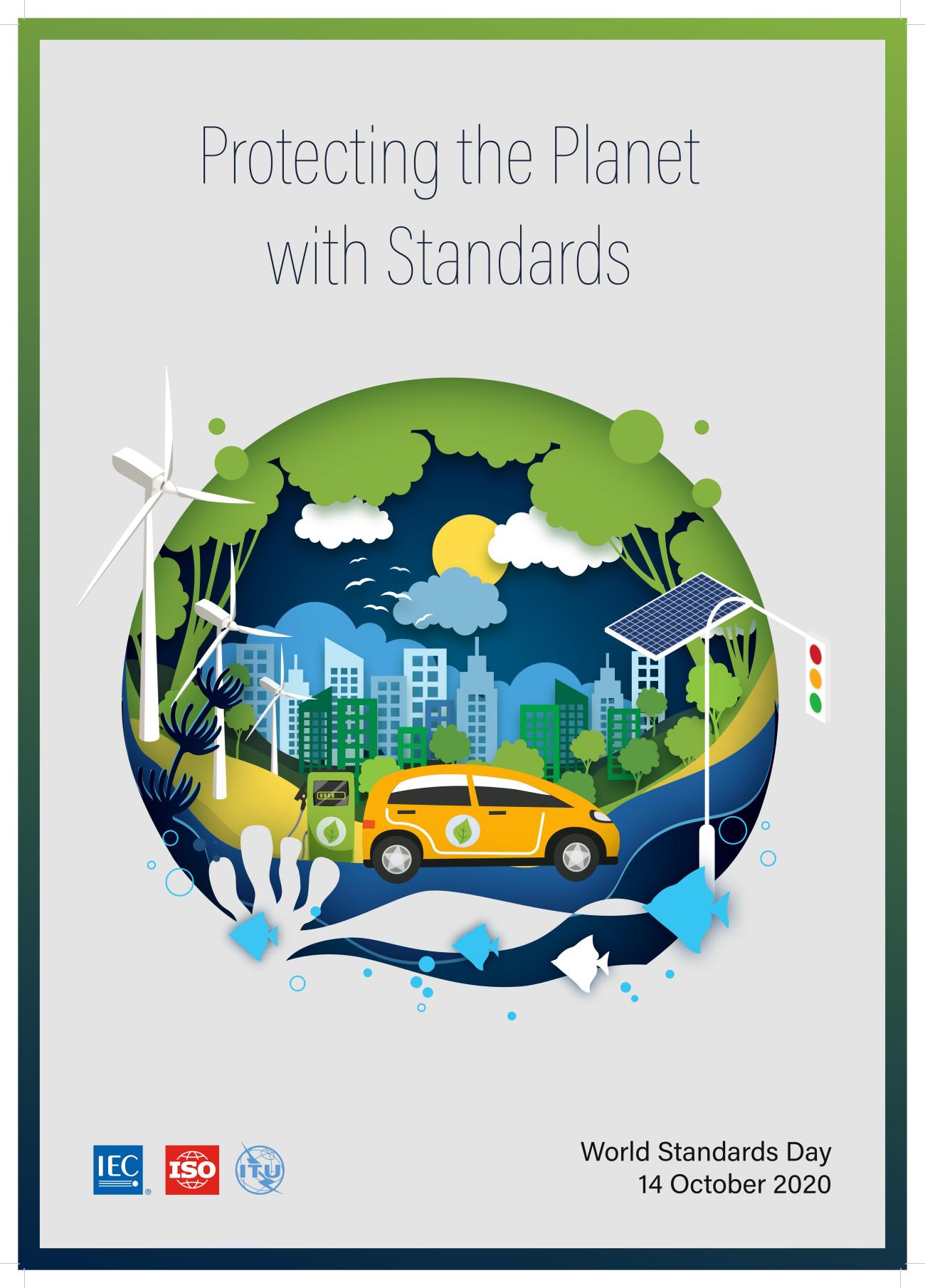Earth, a finite vessel of life in the vastness of our solar system. Life on earth depends on energy coming from the sun. However, over the last century human and large-scale industrial activities of our modern civilization have added to earth’s natural greenhouse gases. They negatively impact our climate and with it all forms of life. At the same time rapid population growth and broad urbanization call for the responsible use of limited resources.
To reduce human impact on our planet, we need the political will, concrete actions and the right tools. International standards are one of such tools. The international standards prepared by the International Electrotechnical Commission (IEC), the International Organisation for Standardisation (ISO) and International Telecommunication Union (ITU) take into account tried and true solutions to technical challenges.
They help share expertise and expert know-how broadly within developed and developing countries alike. Standards cover all aspects of energy savings, water and air quality. They lay down standardized protocols and methods of measurement. Their broad use helps reduce the environmental impact of industrial production and processes, facilitates the reuse of limited resources and improves energy efficiency.
The United Nations Industrial Development Organisation, UNIDO is the specialized agency of the United Nations that promotes industrial development for poverty reduction, inclusive globalization and environmental sustainability. UNIDO’s mission is to promote and accelerate inclusive and sustainable industrial development in its Member States, including Vietnam. UNIDO strongly believes that standards and quality compliance will add values to inclusive and sustainable development.
Therefore, UNIDO is supporting its Member States, especially the developing countries to increase access to export markets by increasing the volume and range of products they sell and more importantly, to comply with increasingly stringent requirements with regard to product quality, safety, health and environmental impacts.
UNIDO also has been supporting the developing countries and economies in transition to overcome the shortcomings of their standards and quality infrastructure. UNIDO’s supports include the establishment or strengthening of standardisation bodies; harmonization of national standards with regional and international ones and assistance to participate into regional and international standards development activities.
Standards and quality compliance is one of the vital issues in Vietnam nowadays as the country is trying to tap the “new power” from the EU-Vietnam Free Trade Agreement, which has been approved and become effective to recover its economy. Vietnam needs to invest in increasing the values, quality of its products and services to compete in the EU markets. Vietnamese SMEs need to ensure food safety, meet all EU standards and management processes; respect social corporate responsibilities, transparency in labour information, production environment, especially the Rules of Origin when exporting their products to the EU.
Mrs. Le Thi Thanh Thao, UNIDO Vietnam Office Country Representative said: “UNIDO is working with relevant ministries and government agencies of Vietnam to raise the awareness for international standards and quality compliance among the SMEs on general and those mango producers in the Mekong River Delta in particular and to create a culture of quality to enable them to access high-quality export markets.”
Mr. Nguyen Hoang Linh, Deputy Director General of the Directorate for Standards, Metrology and Quality, Ministry of Science and Technology (STAMEQ) said “STAMEQ as the national standards body of Vietnam is carrying out many programmes to support enterprises in developing and complying standards in their production and business activities, which is critical or even vital for them to improve the quality of products and services to meet the requirements of the high quality export markets”.
Each year on 14 October, World Standards Day is celebrated to pay tribute to the collaborative efforts of thousands of experts worldwide who develop the voluntary technical agreements that are published as International Standards.






